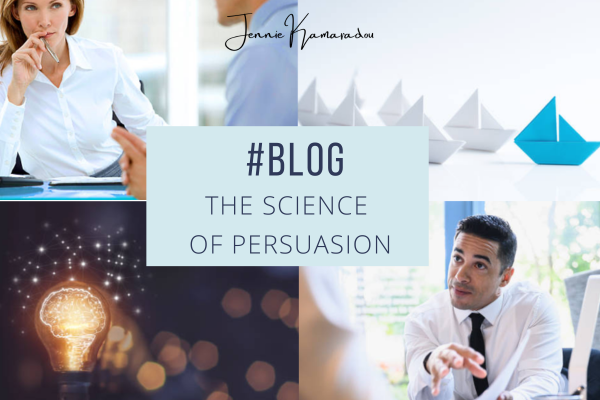For over 60 years researchers have been studying the factors that influence us to say yes. And there can be no doubt that there’s a science to how we are persuaded. When deciding it’d be nice to think that people consider all the available information to guide their thinking. But the reality is very often different. In the increasingly overloaded lives we lead, more than ever we need shortcuts or rules of thumb to guide our decision-making.
The brain uses the following six shortcuts to decide whether to say yes or no to someone’s proposal. Understanding these shortcuts and employing them in an ethical manner can significantly increase the chances that someone will be persuaded by your request.
1.Reciprocity
Simply put, people are obliged to give back to others the form of behavior, gift, or service that they have received first. If a friend invites you to their party, there’s an obligation for you to invite them to a future party you are hosting. We are more likely to say yes to those that we “owe”. The key to using the principle of reciprocation is to be the first to give and to ensure that what you give is personalized and unexpected.
2.Scarcity
People want more of those things they can have less of.
When a brand announces a limited-edition series suddenly the demand is huge. So when it comes to effectively persuading others using the scarcity principle, the science is clear. It’s not enough simply to tell people about the benefits they’ll gain if they choose your products and services. You’ll also need to point out what is unique about your proposition and what they stand to lose if they fail to consider your proposal.
3.Authority
This is based on the idea that people follow the lead of credible knowledgeable experts. Physiotherapists for example can persuade more of their patients to comply with recommended exercise programs if they display their medical diplomas on the walls of their consulting rooms.
What science is telling us is that it is important to signal to others what makes you a credible knowledgeable authority before you make your influence attempt.
And surprisingly science tells us that it doesn’t seem to matter if the person who introduces you is not only connected to you but also likely to prosper from the introduction themselves.
4.Consistency
People like to be consistent with the things they have previously said or done.
Consistency is activated by looking for and asking for small initial commitments that can be made. For example, research has shown that people who gave their credit card information before signing up for a 15-day trial program for an app where persuaded to continue using it after the trial compared to those who didn’t make that small commitment.
5.Liking
People prefer to say yes to those that they like. But what causes one person to like another? Persuasion science tells us that there are three important factors.
- We like people who are like us.
- We like people who pay us compliments.
- We like people who cooperate with us towards mutual goals.
So to harness this powerful principle of liking, be sure to look for areas of similarity that you share with others and genuine compliments you can give before you get down to business.
6.Consensus
Especially when they are uncertain, people will look to the actions and behaviors of others to determine their own.
So, science is telling us that rather than relying on our own ability to persuade others we can point to what many others are already doing especially many similar others.
The most important thing to remember is to use this information ethically and honestly.
If you would like to learn more about the science of persuasion, please contact us or book a free meeting.
Do not forget to follow us on Facebook, Instagram and LinkedIn for more tips and information.


